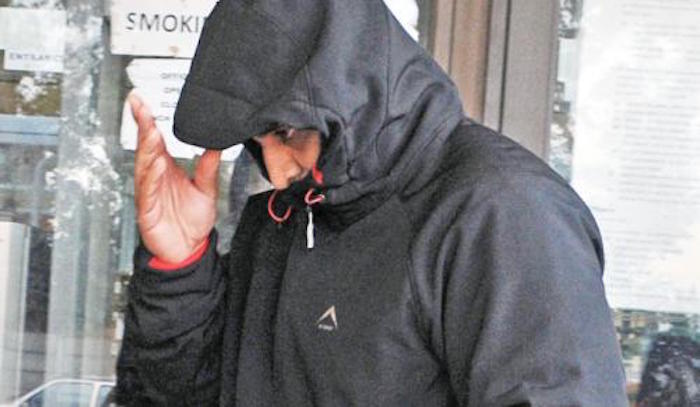As the International Gun Destruction Day approaches, the recent conviction of ex-policeman Chris Prinsloo and the arrest of a 41-year-old Cape Town businessman, Irshaad Laher, has angered Cape Town residents who continue to be faced with rising gang violence. Both men were involved in the illegal sale of guns to gangsters on the Cape Flats.
The 55-year-old ex-policeman was sentenced to 18 years in prison for the sale of firearms, which were meant to be destroyed, and subsequently ended a plea and sentence agreement with the state. In his agreement, Prinsloo confessed to selling weapons to a Cape Town businessman who supplied guns to gangsters in Cape Town. The State ordered Prinsloo to repay R1.2 million of the approximate R2 million that he raked in the sale of the weapons.
Cape Town residents were shocked to discover that the man Prinsloo referred to is the part-owner of the popular Spur franchise in Observatory and Ottery, as well as Nando’s Belgravia. Laher allegedly illegally sold approximately 2500 guns to gangsters on the Cape Flats.
In light of the recent reports, retired advocate barrister and CEO of the Justice Alliance of South Africa (JASA), John Smyth explains that five years ago, JASA took the minister of police to court on the question of whether those who surrender their guns under the Firearms Control Act of 2004, which provides that Individuals be given compensation for the surrendering of guns, are in fact compensated.
“We took the minister to court because thousands of guns were being surrendered, but no compensation was paid,” he said.
The case was subsequently referred to the Supreme Court of Appeal, which ruled that in an ordinary case when a gun is surrendered to police the gun would be destroyed. The court further stipulated that in the event that a police official requires the weapon for training purposes, then the police would have to pay compensation.
“We never believe that the police would compensate, we believe that the guns were being stored somewhere and there was a real danger that they would get into wrong hands.”
Describing the situation as frightening, Smyth says that labelling the case as ‘smuggling’, as reported in the media, conveys the idea that guns were brought in from outside the country.
He says that he believes the guns to be weapons that were handed in voluntarily, which were not destroyed as expected or compensated for.
“How do we destroy a gun anyway? We were not told that in our court case, but that they were placed somewhere, allegedly safe – someone got their hands on it,” Smyth continued.
Director of Advocacy and Lobbying, Gun Free South Africa, Adele Kirsten explains that the most tragic impact of gun smuggling amongst police officials is the dramatic increase in gun deaths since 2010.
She says that new research indicates that there is a direct correlation between gun deaths and the illegal sale of guns.
While gun deaths stats have for almost 15 years decreased nationally, Kirsten says that the difference in national and provincial stats calls to question provincial factors that contribute to the stark variation in stats.
“When a province moves outside of what’s happening nationally you need to ask why; what’s happening locally that’s making one particular province present a very different picture to the other provinces.”
She says that the increase in gun deaths within the Western Cape is partly due to poor control on the part for the state with regards to recovered weapons, further asserting that it is closely linked to the abuse of power and corruption within the South African Police Service (SAPS).
“It takes one cop to abuse the system to have a devastating impact on the lives of those in the Western Cape and it makes a huge dent in the confidence that people have in SAPS.”
She further notes that the 18 year sentence that was handed to Prinsloo is a significant sentence that will send a message of warning to those continuing to illegally trade in firearms.
Kirsten says that the arrest and subsequent conviction of Prinsloo are indicative of good police intelligence and has called to the fore the frustration within Cape Flats communities about the level of corruption running rampant within SAPS.
While South Africa annually destroys hundreds of weapons publicly, where the weapons are melted, Kirsten asserts that the case is isolated to internal corruption.
VOC






 WhatsApp us
WhatsApp us 

